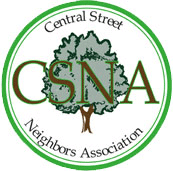DIY Democracy in Evanston: Should We Abolish the City Manager Position?
The impending void in the City Manager position created by the tendered resignation of Julia Carroll comes at a time when one of the 2 Assistant City Manager positions is vacant, the Director of Community Development position is about to be vacant, the City is looking for both a Finance Director and a Revenue Director, one of the zoning staff has resigned, the top in-house city attorney has left, and longtime City Clerk Mary Morris has resigned. Meanwhile, the next consolidated primary election is Feb. 24, 2009, with a runoff on April 7, so one way or the other we're less than a year away from a new Council and mayor. Since the City Manager fills the positions lower down, the circularity of vacancies would seem to make it harder to fill any of these positions -- would you want to come in as an assistant city manager or department head not knowing who your boss(es) will be?
This mass uncertainty comes after a year or two where many citizens sense and have expressed that someone or something other than residents and voters is steering city government. I'm not suggesting an evil conspiracy, it may be no more than institutional inertia, but certainly many feel that way. That raises a question that otherwise might not have come up: what if we (Evanston) dispensed with an ultimate-authority city manager, and instead had department heads responsive to the mayor and Council, and thus more directly to voters?
Our current city manager (technically council-manager) form of government (with a mayor weakened even more by rules the Council passed over a decade ago), common in towns our size, was originally intended as reform. Enacted in 1952, it hasn't been seriously re-examined since. However, under the state constitution and home rule, we can adopt any form of government we want.
I respect tradition but also believe in periodic self-examination. Times change. Evanston in 2008 is not Evanston in 1952; consider that in 1952, Evanston did not have an open housing law, or a single condo complex, and was a "dry" town, and ETHS had a rifle corps and four bowling alleys. It was an unrecognizable world in many ways.
The council/manager form of government was intended as reform against a rotten Chicago "ward" system but was also the product of a more patrician attitude; having a "professional" staff is like having a landscaping and gardening service mow your grass and cut your flowers; having a mayor-council form means that citizens must tend more to their own front yard. While that poses risks of a renegade Council (or mayor), it also makes government more directly responsive to the citizenry. Lest that conjure up metaphors of Jacksonian ruffians dancing through the Civic Center in muddy boots, consider that the Internet now makes it easier for government to be more transparent, mitigating against some of the dangers of runamok populism.
As it is now, the Council takes heat but has limited control, an unenviable position; it can hire or fire a City Manager, but the City Manager stands as a buffer between the Council (and thus the citizens) and the staff. The mayor is the only person elected to represent all, but has least power. One can think of reasons why this is a good thing. I am one who believes that aldermen should be more legislators, rather than constituent-services brokers (as expected in Chicago). Yet there are tradeoffs to having city government not directly answerable to elected officials.
If the Mayor and/or Council were more hands-on, that might inspire some to run who now don't. More candidates does not mean better government, and given the paltry compensation of our Council and mayor, I'd hardly urge more expensive campaigns. Yet: we elect the chief executive of our country, our state, and our county, but not our city -- doesn't it seem odd that at the level where, theoretically, it's easiest to keep a direct eye on government, we don't, and to some degree can't, because of self-imposed filters?
The impending vacancy prompts this discussion, which I intend not as a comment on any individual(s), but as serious question as to what might best serve the public. Also, we have fiscal issues, and a city manager is an expense -- as is a national search firm. Leaving some top positions open is a time-honored way of trimming budget. We could cut out the city manager salary and benefits, pay the mayor and Council a part-time wage that isn't a disincentive to service (say $50K/$25K instead of the current 20/10), or even make the mayor fulltime. It might not be a great savings, but it all adds up.
Any such change would take a binding referendum but could be placed on the November ballot.
Would it be better or worse? Would staff flee in droves, or take such a change in stride as professionals? Is there sufficient talent amongst the population to guide this town? Would city government become more responsive, or just more politicized?
Just a thought. What are yours?
Forums:
- Log in to post comments

trish stieglitz
Mon, 05/05/2008 - 23:07
Permalink
Who's running the government?
Jeff, thanks for the thought-provoking blog.
In light of all the recent departures from such high level and long term staff and with a lame duck city manager, who’s running the government? Seriously, it can take many many months to fill these positions.
I agree that we should have a self examination and maybe some real in depth discussions about what could be the best functioning government. There are a lot of very smart Evanston residents, some who are Alderman, a lot working on boards and committees, but probably many more who are sitting out because they find participating so difficult. The timing is now, if ever there was one.